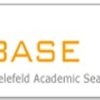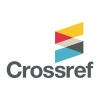Penggunaan metode structural equation modelling untuk menganalisis pengaruh dukungan teman sebaya dan self-efficacy terhadap motivasi berprestasi siswa
Abstract
Full Text:
PDFReferences
Achmad, M., & dkk. (2004). Pengantar Ilmu Pendidikan. UPT UNNES.
Alwisol. (2008). Psikologi Kepribadian. UMM Press.
Dhiu, K. D. (2017). Hubungan Motivasi Belajar terhadap Prestasi Belajar IPS Siswa Kelas V SD Gugus VI Kecamatan Golewa Selatan. Jurnal Tunas Bangsa, 4(2), 173–184.
Dimyati. (2009). Belajar dan Pembelajaran. Rineka Cipta.
Dirwanto. (2008). Analisis Faktor-Faktor yang Mempengaruhi Kesiapan Kerja pada Siswa SMK Ma’arif NU Kesesi Kabupaten Pekalongan. Universitas Sebelas Maret.
Hamalik, O. (2008). Perencanaan Pengajaran Berdasarkan Pendekatan Sistem. Bumi Aksara.
Khafid, M., & Suroso. (2007). Pengaruh Disiplin Belajar dan Lingkungan Keluarga terhadap Hasil Belajar Ekonomi. Jurnal Pendidikan Ekonomi, 2(2), 185–204.
Mulyasa, E. (2009). Menjadi Guru Profesional. PT Remaja Rosdakarya.
Pahrudin, Martono, T., & Murtini, W. (2017). Pengaruh Kompetensi Pedagogik, Kepribadian, Profesional dan Kompetensi Sosial Guru terhadap Hasil Belajar Ekonomi Siswa. Jurnal Penelitian Universitas Nusantara PGRI Kediri, 04(01), 19–30.
Rifa’i, A., & Anni, C. T. (2009). Psikologi Pendidikan. Universitas Negeri Semarang Press.
Rohimi, M. A. (2020). Pengaruh Pergaulan Teman Sebaya terhadap Motivasi Belajar Siswa pada Mata Pelajaran Ekonomi. Universitas Islam Negeri Sultan Syarif Kasim Riau.
Sidiq, I. A. Q. (2016). Pengaruh Pergaulan Teman Sebaya terhadap Prestasi Belajar Matematika . Jurnal Pendidikan Guru Sekolah Dasar , 5(32), 3050–3055.
Slameto. (2003). Belajar dan Faktor-faktor yang Mempengaruhinya. Rieneka Cipta.
Tu’u, T. (2004). Peran Disiplin pada Perilaku dan Prestasi Siswa. PT. Gramedia Widia Sarana Indonesia.
Undang-Undang Republik Indonesia Nomor 20. (2003). Sistem Pendidikan Nasional.
DOI: http://dx.doi.org/10.48181/tirtamath.v5i1.19270
Refbacks
- There are currently no refbacks.
Copyright (c) 2023 TIRTAMATH: Jurnal Penelitian dan Pengajaran Matematika
Ciptaan disebarluaskan di bawah Lisensi Creative Commons Atribusi 4.0 Internasional .
Tirtamath: Jurnal Penelitian dan Pengajaran Matematika. Jurnal ini diterbitkan oleh Program Studi Magister Pendidikan Matematika Universitas Sultan Ageng Tirtayasa (cetak) dan Jurnal Untirta (eprint).
Alamat Penerbit: Program Studi Magister Pendidikan Matematika Kampus FKIP Untirta Jl. Ciwaru Raya, Cipare, Kec. Serang, Kota Serang, Banten 42117, Email: [email protected] |Klik untuk mengakses: Tirtamath: Jurnal Penelitian dan Pengajaran Matematika






